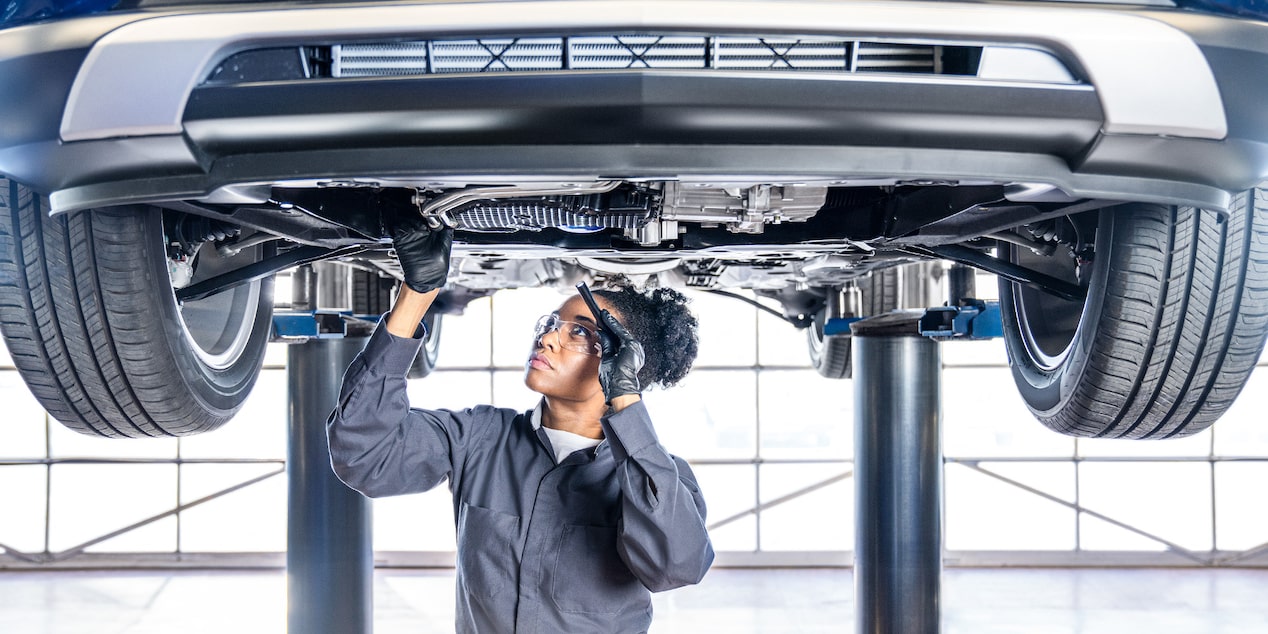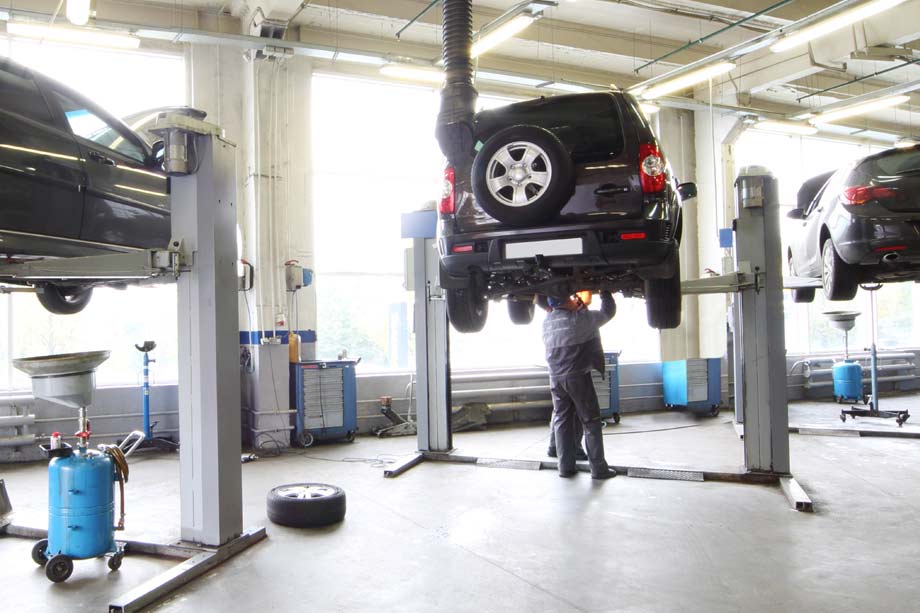All Categories
Featured
Modern automobiles are increasingly dependent on complex electrical systems to power everything from the engine to the infotainment system. With innovative modern technologies like hybrid and electric powertrains, high-tech sensors, and incorporated computer system systems, detecting electrical problems has ended up being a more elaborate process for car service center. Recognizing exactly how these concerns are detected can aid vehicle proprietors make notified choices when looking for fixings. Right here's a summary of exactly how car service center identify and attend to electric issues in today's automobiles.
For instance, if the check engine light begins, the OBD-II scanner will give a code that shows whether the issue exists with the gas system, ignition system, or even a malfunctioning sensing unit. This prompt information helps technicians narrow down the cause of the electrical problem, whether it's a damaged alternator, sensor malfunction, or a stopping working battery.
![]()
By thoroughly examining these components, professionals can identify any kind of loosened connections, damaged cords, or parts that are showing indications of wear and tear. This examination is necessary for discovering issues that might not be right away noticeable in the diagnostic codes however are visible to the professional.
![]()
Furthermore, technicians might check the generator's ability to bill the battery while the engine is running, ensuring that it is generating the right voltage (usually around 13.7 to 14.7 volts) If either the battery or alternator is falling short, it can trigger electric failures throughout the car.
Furthermore, with the surge of complicated systems like lane-assist, adaptive cruise control, and car park sensing units, diagnostic devices enable professionals to assess how electric signals are being sent out to and from these systems to ensure appropriate functionality.
If the problem is software-related, a service technician might perform a software application reset, update, or reprogram particular components to restore correct performance. This is particularly appropriate for concerns like malfunctioning infotainment systems, sensor calibration errors, or defective powertrain control modules.
![]()
In addition, modern lorries often have progressed safety features, such as electronic stability control and collision-avoidance systems, that rely greatly on sensors and control modules. These systems can be inspected utilizing specialized diagnostic devices to guarantee they are working correctly.
Verdict. Detecting electric problems in contemporary cars is a precise and thorough process that needs specialized tools and knowledge. Regular maintenance and prompt attention to electrical issues are necessary for maintaining modern-day lorries running smoothly and safely.
- Utilizing OBD-II Scanners for Diagnostics. One of the very first steps in detecting electrical problems in modern-day cars is to connect an OBD-II (On-Board Diagnostics) scanner to the vehicle's analysis port. This standardized tool permits professionals to recover problem codes from the car's computer system, which can pinpoint defective components. The OBD-II system keeps track of different electrical elements, consisting of sensors, electrical wiring, and components, and supplies mistake codes connected to details troubles.
For instance, if the check engine light begins, the OBD-II scanner will give a code that shows whether the issue exists with the gas system, ignition system, or even a malfunctioning sensing unit. This prompt information helps technicians narrow down the cause of the electrical problem, whether it's a damaged alternator, sensor malfunction, or a stopping working battery.

- Visual Examination of Electric Elements. As soon as the specialist obtains pertinent codes, the next step entails an aesthetic evaluation of the electrical parts. This consists of checking the battery, alternator, merges, wiring, ports, and relays. As an example, a worn-out battery cable television could cause intermittent power issues, or a corroded terminal might interfere with electric flow.
By thoroughly examining these components, professionals can identify any kind of loosened connections, damaged cords, or parts that are showing indications of wear and tear. This examination is necessary for discovering issues that might not be right away noticeable in the diagnostic codes however are visible to the professional.

- Evaluating the Battery and Billing System. The battery and billing system are central to the automobile's electrical system, and lots of electric issues stem from concerns with these elements. To ensure they are working correctly, car service center will certainly do a series of tests.
Furthermore, technicians might check the generator's ability to bill the battery while the engine is running, ensuring that it is generating the right voltage (usually around 13.7 to 14.7 volts) If either the battery or alternator is falling short, it can trigger electric failures throughout the car.
- Carrying Out Circuit Examinations. Electric circuits in contemporary automobiles are intricate, with cords linking several parts like sensors, actuators, and lights. Vehicle repair stores utilize circuit testers to look for power circulation or possible issues within the wiring. Professionals commonly use a test light or a voltmeter to check continuity, verifying if power is being supplied to the influenced parts. An absence of continuity or reduced voltage might suggest a damaged cord or short circuit.
Furthermore, with the surge of complicated systems like lane-assist, adaptive cruise control, and car park sensing units, diagnostic devices enable professionals to assess how electric signals are being sent out to and from these systems to ensure appropriate functionality.
- Software Application Diagnostics and Updates. Modern cars are furnished with a variety of software program that regulates electric systems. Sometimes, electric concerns emerge due to software application glitches or out-of-date software application. Vehicle repair stores can link to the automobile's computer system to look for any kind of software updates or patches that could resolve electric breakdowns.
If the problem is software-related, a service technician might perform a software application reset, update, or reprogram particular components to restore correct performance. This is particularly appropriate for concerns like malfunctioning infotainment systems, sensor calibration errors, or defective powertrain control modules.
- Specialized Testing for Advanced Electrical Equipments. With the advent of electric and hybrid vehicles, the intricacy of electrical systems has actually grown even better. These lorries have high-voltage battery systems, electrical drive motors, and advanced power monitoring systems that need specialized diagnostic devices. Automobile service center geared up to manage these cars will certainly use sophisticated equipment created for high-voltage testing, guaranteeing that the power, battery, and motor systems are operating as anticipated.

In addition, modern lorries often have progressed safety features, such as electronic stability control and collision-avoidance systems, that rely greatly on sensors and control modules. These systems can be inspected utilizing specialized diagnostic devices to guarantee they are working correctly.
Verdict. Detecting electric problems in contemporary cars is a precise and thorough process that needs specialized tools and knowledge. Regular maintenance and prompt attention to electrical issues are necessary for maintaining modern-day lorries running smoothly and safely.
Latest Posts
Smooth Light Weight Aluminum Seamless Gutters: The Smart Option for Your Home
Published May 10, 25
1 min read
The Future-Proof Strategy to Advertising
Published May 10, 25
1 min read
Experience the Fascinating Past of Deauville Inn: From Speakeasy to Jersey Shore Icon
Published May 10, 25
2 min read
More
Latest Posts
Smooth Light Weight Aluminum Seamless Gutters: The Smart Option for Your Home
Published May 10, 25
1 min read
The Future-Proof Strategy to Advertising
Published May 10, 25
1 min read
Experience the Fascinating Past of Deauville Inn: From Speakeasy to Jersey Shore Icon
Published May 10, 25
2 min read